The Anthropological view on Religion, The Supernatural and Magic : Part 1
Disclaimer
It is not the aim of anthropological study to obtain factual knowledge of supernatural beings or powers. The aim, instead, is to understand the great variety of conceptions of the supernatural within the context of particular systems or communities. Anthropologists will unavoidably be influenced by their own beliefs and their own conception (or denial) of supernatural. It is, however, their task to understand any religious system in terms of its meaning for its adherents.
The Anthropological view on Religion, The Supernatural and Magic : Part 1
Introduction
Human beings live in circumstances and environments over which they have little control. Natural disasters are an example. Despite the development of technological experience and scientific knowledge, tsunamis, earthquakes, and erupting volcanos still take us unawares and kill many thousands of people all at once. Even if we know what causes such events, we still find ourselves asking the question: Why?
- We all live with the knowledge of death, but even that inevitable reality remains, for many people, unbelievable.
- Although we now understand the biology of conception and birth, birth remains, in many ways, "miraculous".
- The universe and our planetary system still puzzles.
What lies beyond the "last" solar system; what keeps all of these systems together, do they "hang" in space, what is "space"; where does it all end; is there an end; what is infinity?
Human experience has always involved events that cannot be explained or understood, and people have always developed ways to deal with such matters. All communities have religious or belief systems just as they have economic, political, kinships and other sociocultural systems. Although all people in communities or societies around the world have beliefs that can be termed religion, these beliefs vary a great deal. In subsequent posts, we shall deal with these differences in religious beliefs and practices. We shall also look at similarities between them, to see if we can find out what constitutes the very nature or essence of religion.
What is religion - and Magic?
Not only do all contemporary communities in the world have some form of religion, but archaeologists have found evidence of religious belief associated with Homo sapiens who lived some 60 000 years ago. Early human beings started to deliberately bury their dead, and the remains of food, tools and other objects have been found in graves - we can only assume that the communities believed that these were needed in some sort of afterlife. Rock paintings and other forms of prehistoric art also contain symbolism that suggests people believed in the existence of supernatural spirits and that they tried to communicate with, or perhaps even influence them.
Given the prehistoric indications and the documented evidence of historic religions and the contemporary universal reality of religion, it is not surprising that it has been the subject of extensive discussion, speculation, research and theorising. As long as 2500 years ago, Herodotus compared some 50 religions which he had encountered in his travels throughout Greece. He found many similarities and also found evidence of the spread of religious worship. In the intervening years scholars, theologians, historians and philosophers have considered and deliberated about religion, sometimes presuming the superiority of their own forms of religion; at other times ridiculing the simplicity of other systems; and yet others also expressing scepticism concerning all such beliefs.
As we are well aware by now, anthropologists are not in the business of "better" or "worse", their interest in in the nature of religion and why all communities have religion. They are also interested in how and why it varies from community to community, and even within a particular community.
When we say that every community or society has a religion, this does not necessarily imply that all individuals in such a grouping are adherents of that religion. It simply means that the majority, or a significant number, of people practise or support a particular belief system.
Psychologists and sociologists have also developed definitions of, and theories to account for, religion and the fact that it is found universally. We shall be looking at all this in more detail later on in the series.
Various theories have been put forward to account for the fact of religion, and some of these are very briefly dealt with below:
The need for religion:
Let us consider these four identified theories for the origin of religion:
- Edward Tylor was one of the earliest social scientists to propose such a theory. He suggested that religion originated in people's speculation about dreams and trances and this suggested a dual existence for all things - a physical, visible body and a psychic, invisible body. At death the soul permanently leaves the body and, because the dead appear in dreams, people came to believe that the souls of the dead were still around.
- Reversion to childhood feelings. Although much of Sigmund Freud's early interpretation of the origin of religion is rejected by social scientists today, his idea that events in infancy can have long-lasting and powerful effects on beliefs and practices in adult life is widely accepted. Helpless and dependent on parents for many years, infants and children inevitably and unconsciously view their parents as all-knowing and all-powerful. When adults feel out of control or in need, they may unconsciously revert to their infantile and childhood feelings. They may then look to gods or magic to do what they cannot do for themselves, just as they turned to their parents to care of their needs.
- Anxiety and uncertainty. Freud also thought that humans would turn to religion during times of uncertainty, but that they would eventually outgrow the need for religion. Bronislaw Malinowski claimed that, in fact, people in all communities are faced with anxiety and uncertainty. They may have skills and knowledge to take care of many of their needs, but knowledge is not sufficient to prevent illness, accidents and natural disasters - the most frightening prospect is death itself, hence the intense desire for immortality. Malinowski thus saw religion as born from the universal need to find comfort in times of crises.
- The need for community. All theorists seem to agree on one thing, regardless of the different beliefs and rituals, religion satisfies certain psychological needs common to all people. That said, social scientists tend to believe that religion originates from society and serves social, rather than psychological, needs,. For example, the French sociologist, Emile Durkheim, indicated that humans experience the "push and pull" forces of society - society directs people as to what is right or acceptable behaviour and prescribes against wrongdoing. These forces of public opinion, custom and law are largely invisible and inexplicable and hence mysterious - thus people came to believe in gods and spirits. This, in turn, confirms a person's place in society - which enhances feelings of community.
The functions of religion
Religious beliefs and practices serve a variety of psychological and social functions, and the similarity to the needs outlined above should be clear. Haviland (2008) provides a number of examples of these:
- An orderly model of the universe. This psychological function plays a key role in establishing orderly human behaviour. Through special stories, accounts or myths people find answers to important questions such as: what does the universe look like, how does it work, and what is my place in it? The accounts of creation in the Book of Genesis are good examples of this.
- Religion reduces the fears and anxieties of individuals by explaining the unknown and making it understandable. These explanations typically assume the existence of supernatural beings and powers, which people may potentially appeal to or manipulate as a means of dealing with crises.
- A psychological function linked to the previous one is a community or society's moral code. Since it is considered to be divinely ordained, this moral code lifts the burden of responsibility off the shoulders of the individual.
- A social function also touched on in the previous section is the role of religion in the maintenance of social solidarity (eg by means of common participation in rituals and beliefs). This helps to bind people together and reinforce their identification with their particular group.
- Religion also performs a function in education (eg during initiation or transition rituals - rites of passage or rites of intensification).
Definitions of religion reflect the same problem as definitions of many other fields of anthropological enquiry: the moment we try to define them, we find that certain phenomena simply do not fit into the framework of the definition. So often, the religious variations between different sociocultural systems are so great that they cannot all be covered by a single definition. For example, EB Taylor (1958) attempted a definition of religion in 1871 as "belief in spiritual beings". Although this certainly pinpoints a very important aspect of religion, and no doubt of most religions, certain religions (eg Buddhism) do not place much importance on the existence of spiritual beings.
Again, the anthropologist AFC Wallace provided a wider definition of religion as "a kind of human behaviour - which can be classified as belief and ritual concerned with supernatural beings, powers and forces" (Wallace 1966) This definition is wider than that of Tylor and, although not satisfactory in all respects, better suits our present purpose. Ember (2005) have further refined Wallace's workable definition as:
any set of attitudes, beliefs, and practices pertaining to supernatural power, whether that power be forces, gods, spirits, ghosts, or demons.
For a better understanding of this definition, and to enhance its usefulness, we should briefly consider certain terms and concepts that are used in it, for example attitudes; beliefs; practices and supernatural (as opposed to natural) - the term magic is also used in the title of this series, so this will also be put in perspective.
Although religion and magic are closely related, and although anthropologists often discuss them in the same context, they are not identical concepts. This brings us to question of how we distinguish between religion and magic.
Some anthropologists base their distinction between religion and magic on the attitude or intention involved. Religions associated with an attitude of dependence, while magic is associated with the intention to manipulate.
The problem with the distinction based on attitudes is that attitudes
- are subjective and highly individualistic
- are not easily identifiable
- are strongly influenced by individuals' emotional condition
- vary and are subject to change
The criterion of attitudes is nevertheless a useful one, since it focuses on religious experience and behaviour.
The distinction based on attitudes does not always coincide with that between personal beings and impersonal powers. An individual or a group may perform an act which attempts to manipulate a personal supernatural being, in which case, the act is magical. However, if we use Tylor's distinction, the act is religious because it is directed towards a personalised being.
On the other hand, we may say with more certainty that manipulation of an impersonal power is definitely magical, and that supplication of a personal supernatural being in an attitude of dependence is definitely religious. Very often, however, the distinction is not as clear as this. Perhaps the safest thing to say here is that magic and religion are polar concepts. This means that many acts fall somewhere between the two poles of "pure" religion and "pure" magic.
In our view, it is impossible to classify all phenomena as either belonging to the sphere of religion or magic. For example, sacrifices to gods or spirits (personal beings), through religious acts, are often coupled with rites designed to bring about specific results (by somehow forcing the supernatural beings to grant the requests). So a religious act often includes a magical element. For this reason, reference to religion in the following posts will often imply magic as well.
Our aim is therefore rather to develop a general framework of the whole magico-religious complex of ideas and practices. We want to make this framework as wide as possible, so as to include as many magico-religious phenomena as possible. Therefore we shall be looking at all kinds of components of religion, such as beliefs, rituals, religious functionaries (person acting in religious acts), and so forth.
It is furthermore important to keep in mind that what many people regard as religious, is the sociocultural systems of other communities embedded in other aspects or systems of everyday life ie: it is often difficult to separate religion from economic, political and other aspects of a sociocultural system. Also, preliterate or more traditional ("small-scale") communities often have no full-time priests and no exclusively religious activities. In the context of our own system or community, it is often difficult to decide whether a particular practice or event is purely religious - or not religious at all. This, of course, again emphasises the fact that a sociocultural system is an integrated whole.
Although all sociocultural systems include religious systems, there is considerable variations in the content of these systems. For example, in perceptions of the supernatural and in the explanations given for phenomena such as disease, death, lightning, misfortune, affluence, and so forth. Likewise, there is considerable variation in beliefs and practices directed at obtaining assistance from the supernatural and maintaining satisfactory relationships with supernatural.
The end of Part 1....
Thank you for reading.
Images are linked to their sources in their description and references are stated below.
Authors and Text Titles
CR Ember 2005 : Anthropology 11th Edition
WA Haviland 2008: Anthropology: The Human Challenge 12th Edition
BA Pauw 1970: Religion and magic
AFC Wallace 1966: Religion: An anthropological view
Thank you @foundation for this amazing SteemSTEM gif
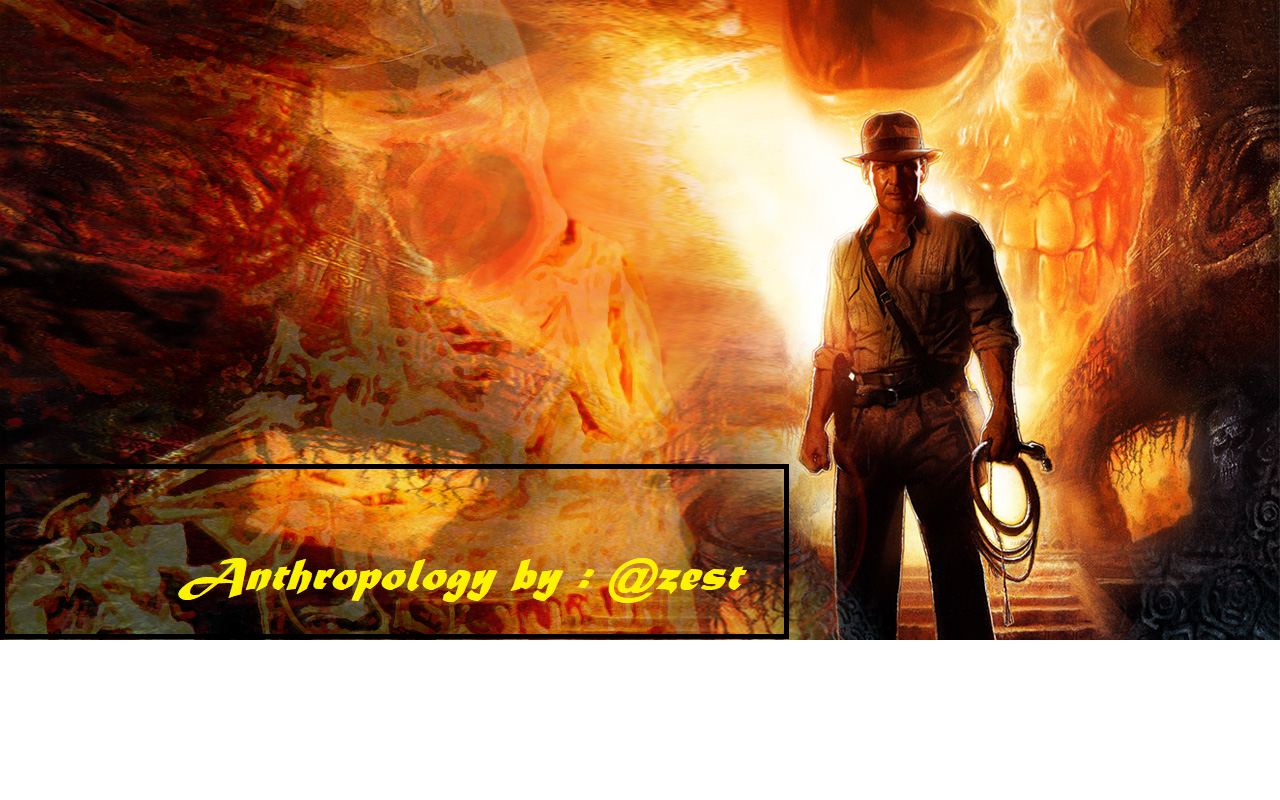


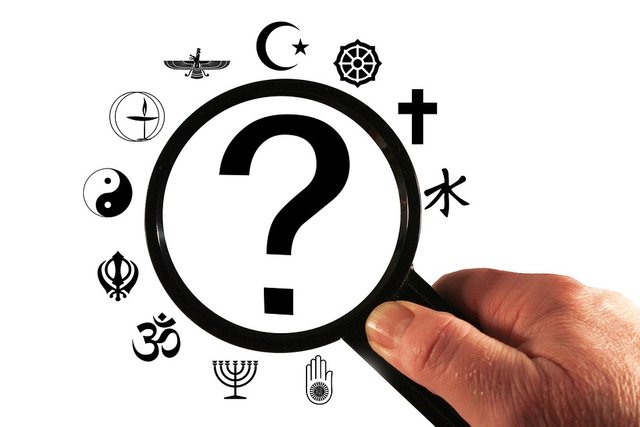
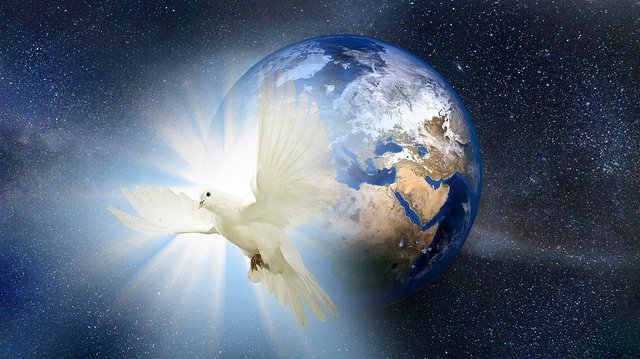

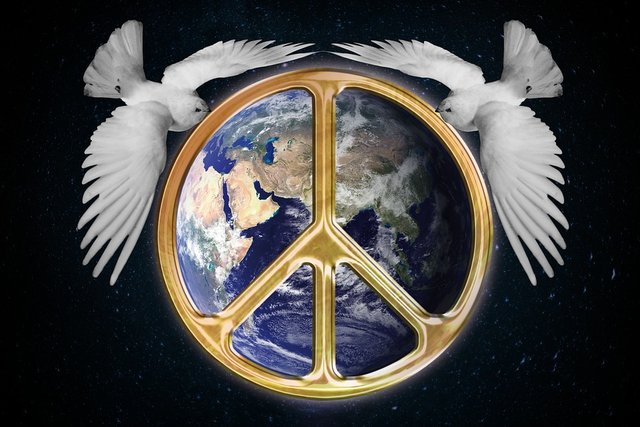
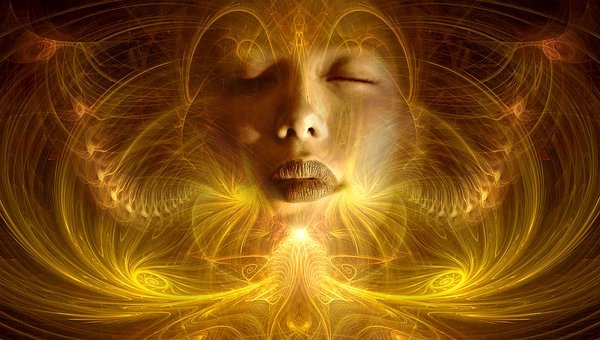


Great introduction!
So, let's dissect this magnificent post of yours:
Sore Kierkegaard states that this very knowledge together with the denial of it is one of the three factors that cause anxiety in humans (a concept you encounter in existential psychotherapy). It was interesting to me to read in your post that Malinowski postulated religion to be the solution humans found to find comfort in such times. It seems that the avoidance of pain and distress is indeed something we have inbuilt in us.
As always, there is always a particular section of your posts I am most drawn to. Here, it's the function of religion. As of late I have come across a lot of material about the studies of depression across the world. And there is a huge amount of evidence showing that communities that nurture religious beliefs are the ones in which people manage to recover from mild depression more often. As their religion offers them a means to overcome their fears, anxieties and sadness. As you pointed out.
And this is the negative side of such beliefs. For example, in cases of severe mental distress such as that caused by schizophrenia, when individuals clearly need medical help but are prevented to be looked after by doctors because of superstitious beliefs.
SUPERB work my dear @zest!
Looking forward to the next part of this series already. :)
Firstly thank you for choosing the topic:)
I am really really happy that you have enjoyed the first part and I hope to continue to meet your expectations :)
As we are both aware that this topic has so many different aspects that keeps us always trying to understand the whole view but I personally feel that we are far from it.
Regarding the aspect of depression, it is reassuring that people find comfort in the knowledge of a higher power and this seems to be the root of religion in a way because the early civilizations much felt devastated emotionally when diseases or natural disasters occurred and took away loved ones.
And you so rightly stated:
Thank you so my dear Abi:)
:*
That’s interesting, because in several ‘traditional’ cultures, those whom we in the modern West would diagnose as having mental health disorders such as schizophrenia are treated as gifted, taking the role of the shaman (or similar types of roles). They are trained to be in this role, which helps them function within their society.
Very interesting topic! Have a good night my friend.
Wow!!! Hi @giantbear!!
Thank you my dear friend:)
Good night:)
Seems like neither of us are in the mood to go to bed...lol
Thank you, @Zest, your article made me think and also feel that you provide here a very unagitated view of religion (magic & supernatural). Sorry for my long comment, but I felt triggered by your words.
I grew up in a community where my people were and are Christians.
Even as a child I noticed that my mother tried to convince me too much of her faith and the methods made me suspicious. I felt that certain rules of conduct were connected with it, which were not always observed by me as continuous and I rejected the belief in a fatherly God who wanted to love as well as punish. For me, the Christian faith was for a long time not much more than a naive concept to compensate for the pain about the transience of life. I became a casual atheist.
On the other hand, I suspect, the Christian faith led me to take a deeper look at the subject, because I had experienced that the community approached me in a way that was not accepted by me, but in the face of practicing faith it became secondary.
Rather, I began to be interested in where the influence in practice showed its positive side. Today I believe that this has had a positive influence on me to a large extent because the practical treatment of the sick, the elderly and the dying takes place in an empathetic and interested way by the members of my congregation. As awkward as the proselytizing attempts were for me verbal, so strong were the actions based on faith and acting accordingly.
I have therefore dropped all scorn and realized that the way my people deal with the important things of life (the way they deal with death) offers a healthy spiritual form that I have not yet seen in anyone who has not found refuge in any way in connection with a spiritual/heartful/mindful form of contemplation. Consolation and confidence are aspects that oppose those of hopelessness and despair.
For me, atheism does not have much more to offer in this respect, because I do not see in it the same practical approach as I have experienced through my Christian heritage.
What you describe, I interpret and add from it the following and quote the Buddhist teachings:
a role model is needed on which people want to orientate themselves (because the people we know are all labeled with blemishes and are therefore not ideal) - in this case the figure of the "Buddha".
there needs to be a teaching - this is called "Dharma" or "Dhamma" by the Buddhists - a coherent, logical and largely self-evident concept which Buddhists impart as "verifiable" - no higher authority and creation theory is behind it.
social involvement (community) and friends who talk to you about their practices and insights and reflect in the dialogue on the state of their knowledge (= valuable conversations) - this is called "Sangha" by the Buddhists.
I am therefore more oriented towards the "function" of religion you mentioned, not so much towards theoretical speaking to people who are merely superficially concerned with it. For my part, I always associate function with the practical aspect of "what can I derive from religion or magic" and where do I see the useful and helpful aspects in people's daily lives. As humans are humans, I guess, there are and always were all kinds of manipulations involved, to the bad and to the good.
Thank you @erh.germany for an amazing comment and for opening up to me about such a personal aspect of your life.
I personally can't comment on your personal choices with regards to the two different religions but I can say that I am really glad that you were able to use your own personal understanding of the concept of religion and make decisions on how it suits you best.
:) smile. It's not so personal as it sounds, or is it?
you gave a scientific overview - I gave you a living example of my culture and development. Fits very well together, no? LOL
Have a nice day & serve the reader with more of your unique writings
Awesome. Quick build here.
Religion also becomes part of culture. Clifford Gertz (also an anthropologist) discuses common sense, norms, and cultural codes in "The Interpretation of Cultures (1973). In his theory, common sense is a set of beliefs and values that individuals internalize and accept as a set of the most obvious, natural, correct actions that one could take in any given situation. When individuals act in accordance with what their common sense, they are acting in accordance with how their society and culture dictates. A notion of common sense can extend to anything, from what to do about a sick child, to courtship rituals, to how to properly treat guests.
It is easy to observe that religion becomes a cultural norm in many, if not all cultures (whether they are the area's dominant culture or a subculture). And religions have a great role in setting that "common sense." So, I think that religion also has a unique way of orienting action.
This is a concept that we will continue to ponder for years or decades to come.
I am a totally opened minded person and say your thinking is a realistic and practical one:)
Thank you for the great comment:)
I am really excited to read the rest of your series! I'm a sociologist, so I am all about this type of thought!! Thank you for bringing great content!
:) I know, I have been following you from your intro post. I love that you are a part of the community. I am also looking forward to reading more great posts you as well:)
Oh yay thank you!!!! This place is exciting!! :D
Your post has been personally reviewed and was considered to be a well written high quality article!
You received a 50% upvote since you are not yet a member of geopolis.
To read more about us and what we do, click here.
https://steemit.com/introduceyourself/@geopolis/introducing-geopolis-the-community-for-global-sciences
If you do not want us to upvote and comment on your posts concerning earth and earth sciences, please reply stop to this comment and we will no longer bother you with our love ❤️
Though I try not to mix religion and science together, but there are things that happen which defy scientific explanation. I call them “supernatural”. My friend would call them AoG (Acts of God).
Nice piece buddy. You’ve so much dealt with this topic. I’d be expecting part 2 :)
I suppose that how our ancestors felt about lightning until they discovered how it was created, so many questions when find we the answers led to more questions:)
That is the journey of life that keeps me excited all the time.
Thank you for the comment and support my dear friend:)
I have this notion that no matter the different ways to which religion is dissected, it has become a tool rather than a belief. Here in my country, religion is more the instrument of politicians and chronic capitalists that call themselves religious leaders. Religious leaders cruise about in private jets and expensive yachts while the followers languish in abject poverty. They are masters at playing psychological games with the minds of their followers.
Having said all that, I still find it a bit uncomfortable that religion and magic are put side by side. Perhaps you might want to expantiate further on the kind of magic in your subsequent posts.
Great piece from you Zest. Keep at it.
Hi @gentleshaid I did cover the difference within the post:
Please don't misunderstand "magic" to refer to David Copperfield or Dynamo sort of magic. (lol)
Thank you for the comment and support my dear buddy:)
lol...or Merlin, perhaps. you are welcome!
this is a really wonderful topic to talk about i myself ways always wondering and thinking about our lives and the earth cosmos and everything
the topic is at the point thanks you for sharing
I am glad I was able to help with some answers. Thank you for the comment:)
I'm excited about your content!
Thanks for sharing.
I love to track all the data regarding Egypt's exile influence on modern Judaism/Christianity's superstitions. Anything regarding the supernatural is fascinating as well. I've seen a few crazy miracles myself and am hoping to continue exploring the spiritual laws that are in place.
Following and upvoting.
Wow!! This is a very nice and interesting post, I have also been thinking a lot about life and space, I wish I could get some answers .. but this is really amazing 👍👍👍👍
Really glad you enjoyed it!
Thank you:)